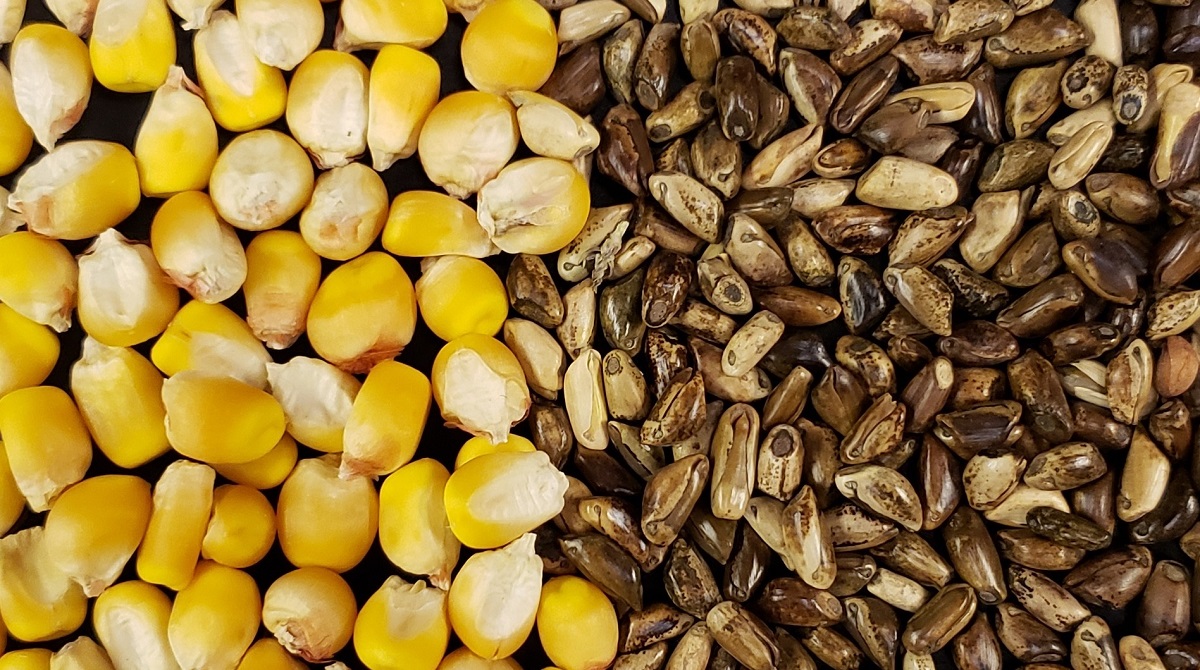
Long Lost Chromosome Increases Nitrogen Efficiency of Modern Maize
December 1, 2022| |
Teosinte high protein 9 (THP9) is a chromosome that encodes an enzyme vital to the nitrogen metabolism of teosinte, maize's ancestor. It is highly expressed by teosinte, but not by modern maize. Its recent discovery offers maize breeders better opportunities to develop new lines that can be grown under limited nitrogen conditions, while increasing the crop's seed protein content.
The researchers from the Chinese Academy of Sciences the discovered it used a method called “trio binning” which simplified teosinte's haplotype assembly. They first resolved allelic variations, which helped piece together teosinte's haplotype DNA sequence. They then figured that characterizing the genes responsible for the high-protein trait in teosinte might reveal a more diverse set of QTLs as compared to the modern maize. And as it turned out, they found a deletion in the intragenic non-coding segment of the modern maize that caused incorrect splicing of the THP9 mRNA.
THP9 was introduced to the modern maize line B73's genome via introgression. This resulted in an increase in seed protein content of the transgenic inbred strain, as well as the free amino acids throughout the plant that included asparagine. The researchers also noted that these traits did not affect the yield of the plant. This discovery highlighted the possible value of maize hybrids that contain the THP9-T allele, which may be able to grow in low nitrogen-soil conditions without causing negative effects on yield.
For more details, see Nature or Genetic Engineering and Biotechnology News.
| |
You might also like:
- New Tool Helps Strip Down Corn Ancestor's Traits for Research Exploration
- Researchers Discover Gene that Helps Maize Adapt to High Elevations and Cold Temperatures
- From Teosinte to Maize, An Evolutionary Farce?
Biotech Updates is a weekly newsletter of ISAAA, a not-for-profit organization. It is distributed for free to over 22,000 subscribers worldwide to inform them about the key developments in biosciences, especially in biotechnology. Your support will help us in our mission to feed the world with knowledge. You can help by donating as little as $10.
-
See more articles:
-
News from Around the World
- FAO Pushes for Transformation of Agri-food Systems to Address Climate Crisis
- Philippines Continues Biotech Lead in Southeast Asia - USDA FAS Report
- EFSA Concludes GM Maize MON 95379 Safe
-
Research Highlights
- Modified Agrobacterium Strain Useful for Switchgrass Transformation
- New Height-Reducing Gene Can Help Wheat Grow in Drier Soil
- Plants Yield Better When Grown Among Genetically Similar Plants
- Long Lost Chromosome Increases Nitrogen Efficiency of Modern Maize
-
Plant
- Study Reveals Role of Soybean 14-3-3 Gene on White Mold Resistance
-
Read the latest: - Biotech Updates (February 18, 2026)
- Gene Editing Supplement (January 28, 2026)
- Gene Drive Supplement (February 22, 2023)
-
Subscribe to BU: - Share
- Tweet

